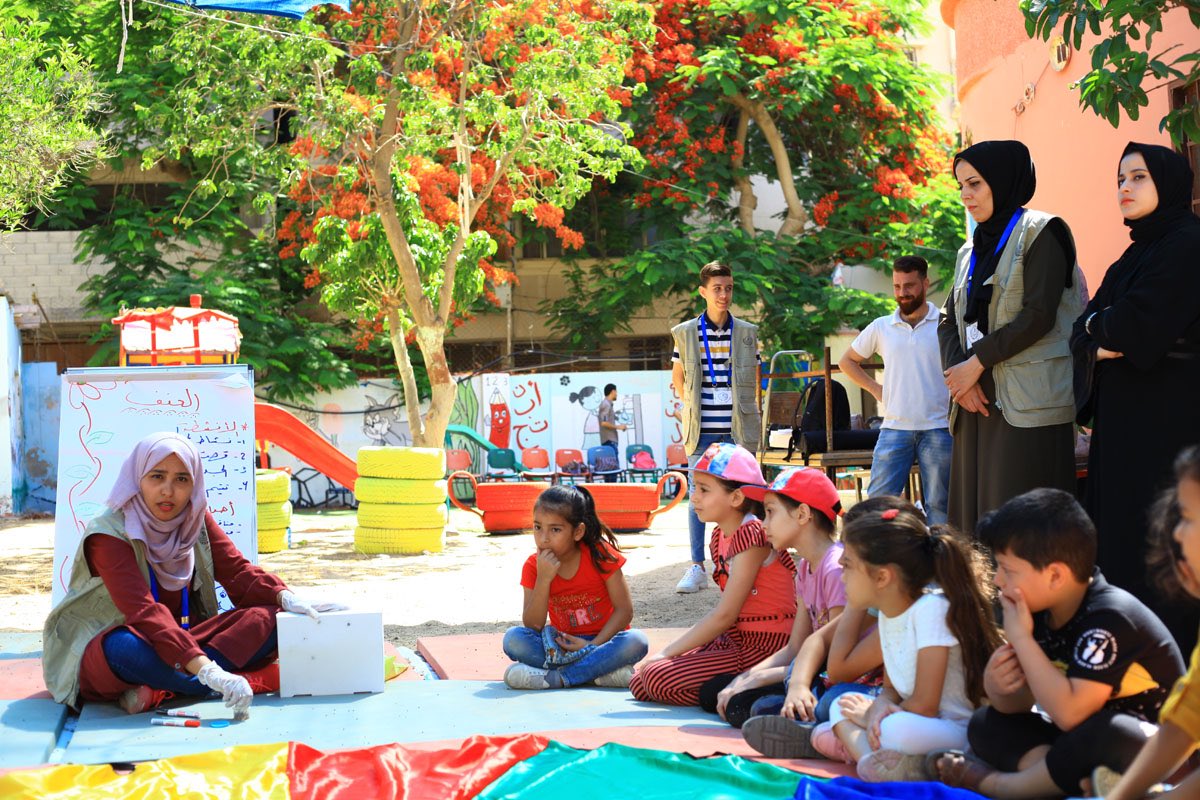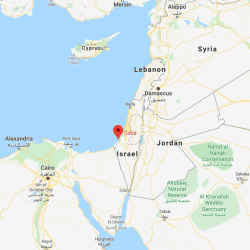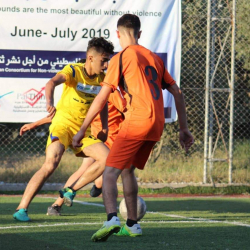
“We want to show the world that Gaza’s youth deserves better”
Omar Shaban
Omar Shaban, founder of PalThink for Strategic Studies and FXB’s partner in Gaza, tells us why the world needs to pay attention to what’s happening in one of the world’s most poverty-stricken regions.
“For a long time, Gaza was one of the best performing and most attractive places in the Arab world”, Omar Shaban, who founded and heads the local NGO PalThink for Strategic Studies, tells us. “Located at the crossroads between Africa and Asia, Gaza was once an incredibly vibrant and diverse mosaic of cultures, religions and ethnicities”, he, a Muslim who headed a Christian organization for nearly a decade, adds. “But this social diversity and cultural richness have almost entirely vanished”.
When violence is seen as the only alternative
One of the most densely populated areas on the planet, Gaza now suffers from record-high rates of unemployment (around 50% of the population, and up to 70% for people aged under 30) and poverty (half of the population, according to the World Bank), while approximately 70% of residents face food insecurity, according to official data released before the pandemic. The situation has only been getting from bad to worse since the military takeover of Gaza by Hamas, more than ten years ago, and the following blockade enforced by neighbouring Israel and Egypt.
“The 2 million residents of Gaza are the ones who suffer the most from the isolation and insecurity”, Omar notes. “Gazans are very talented and peaceful at heart”, he goes on, “but as thousands of young people come out of university every year with no jobs, no prospects to study abroad and no professional opportunities, violence sadly often appears like the only path”.
And Gazans are no stranger to bouts of violence and brutality. Even young people under 25, who account for 65% of the strip’s total population, have already lived through three wars with Israel, not to mention the sporadic cross-border clashes between Hamas and Israel – the latest still ongoing.
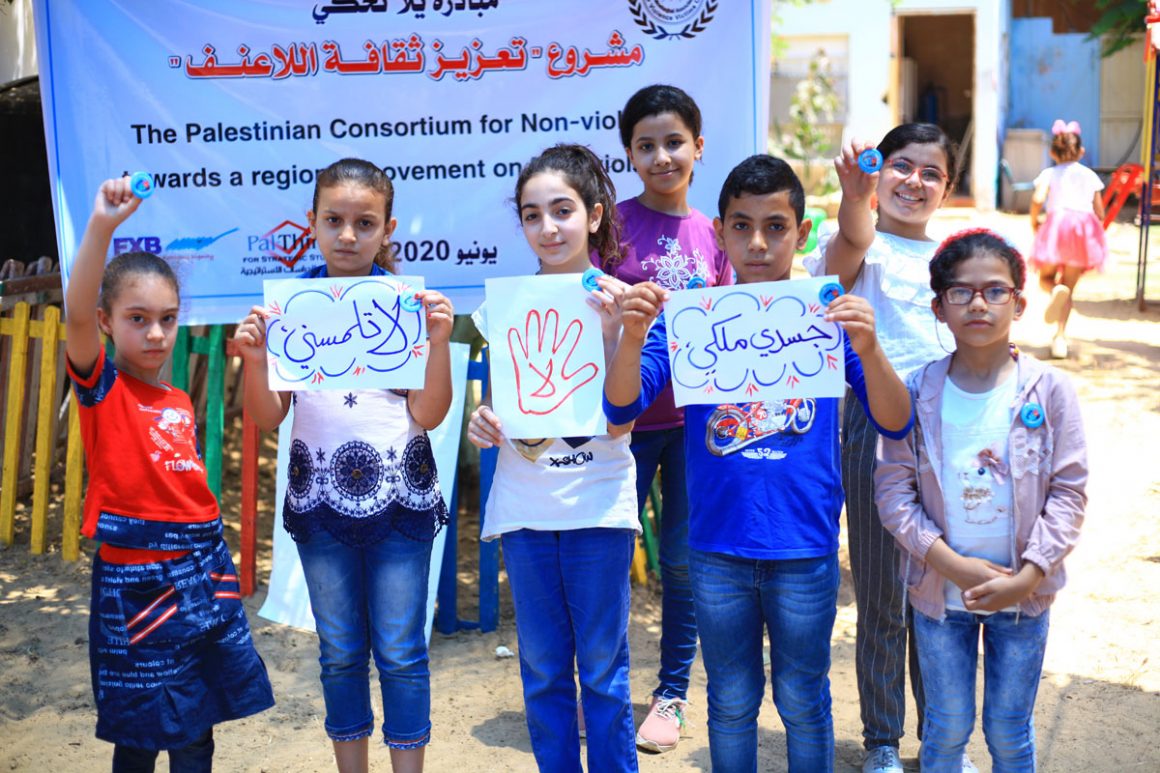
A shimmer of hope
“I need to stay with my people, I don’t want to leave”, confides Omar, whose two sons studied in France and now live in Europe. While the international community’s action focuses on providing much needed, but short-sighted relief humanitarian aid, Omar stresses that he’s committed to support local, grassroots NGOs that can have a lasting impact on the lives of people in Gaza.
One of them is FXB. FXB founder Albina du Boisrouvray had a project for Gaza, and was looking for a partner. She met Omar, and they decided to take action in favour of the main collateral victims of the situation, and those destined to shape the country’s future: Gaza’s youth. Since then, the two organizations, PalThink for Strategic Studies and FXB France, have impacted the lives of over 12,000 people through the launch, support and organization of countless programs, activities and projects, often in partnership with other local organizations, educators and activists, with one fundamental goal: promoting and disseminating a culture of non-violence, peace and tolerance within the Palestinian society, particularly focusing on Gaza’s cohorts of children and young people.
“It’s hard to talk about one specific project, there were so many of them. I could mention the time we gathered a mass of children on the beach flying an armada of kites with symbols of hope and peace; or when we helped youth create theatre plays on the topics of non-violence and tolerance, performed in schools across Gaza; or, more recently, when we held a friendly sports competition for women with disabilities”, Omar says, reveling in the memory of these events. “But every time, we simply want to show the world that Gaza’s youth deserves better than the cards they were dealt with”.
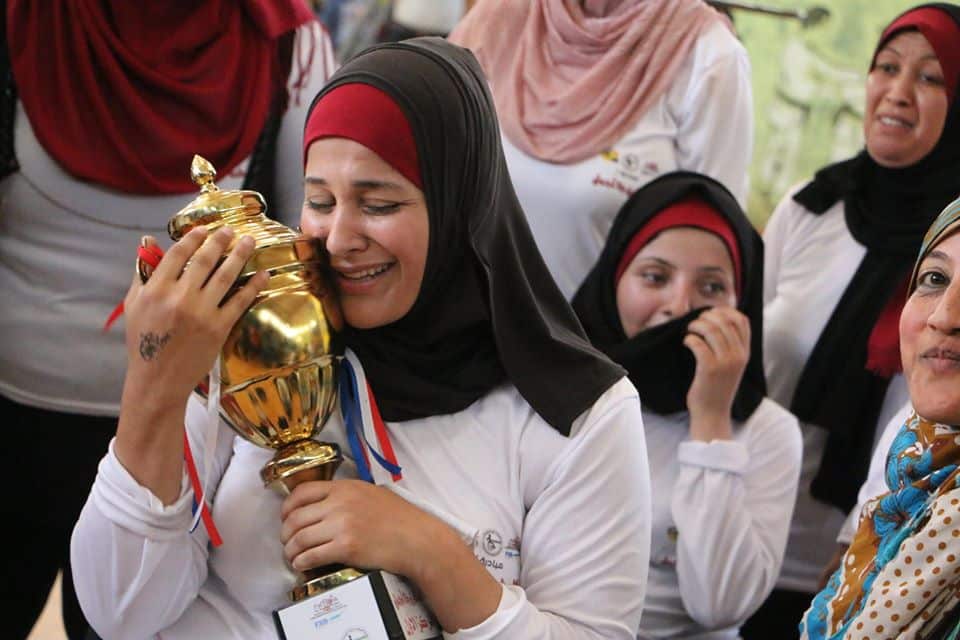
Building bridges: towards a regional movement for non-violence
Three years after meeting with FXB founder Albina du Boisrouvray, Omar is confident of the positive impact of their initiative. “Our joint program with FXB became a milestone in Gaza, and initiated a trend”, he explains. “Of course, we had to suspend our in-person activities for two whole months due to the pandemic, but we remained committed and will continue to work for people whom the general public doesn’t really think or care about, people who are the most in need of our help”.
With approximately 18,000 cases of coronavirus infection reported in Gaza and the West Bank combined, and around 120 deaths from the disease, Gaza appears to have been largely spared from the virus. “For once, the blockade is good”, Omar declares, referring to the fact that the strip’s isolation may have kept infection numbers low compared to elsewhere in the region.
Gaza beach today, where people were enjoying the Eid vacation. Physical distancing is a mission impossible in on of the highly populated area🌍 with electricity cut and very small houses. Gaza has lived with lockdown many years before the COVID19 pic.twitter.com/TTpiutbqY2
— Omar Shaban (@omarthink) May 25, 2020
“Obviously, this doesn’t tell the whole story”, he’s quick to rectify, explaining how the last few months have added additional strain on a population already on edge: the pandemic and restrictions have put thousands of people’s lives at risk, unable to travel to get appropriate medical care in Israel, Egypt or the West Bank. Another worrying trend mentioned by PalThink’s founder is the sudden increase in the number of suicides among young people in Gaza, probably linked to the added socio-economic strain brought by the global health crisis.
After a two-month lockdown, Omar is eager to pursue the work his organization and FXB France have been doing. “But we want to go further”, he concludes, “and create a regional consortium for non-violence in the region, and not only continue to instill hope in the lives of thousands of children and vulnerable people in Gaza, but also build bridges between the Palestinian and Israeli youth, or even beyond”.
